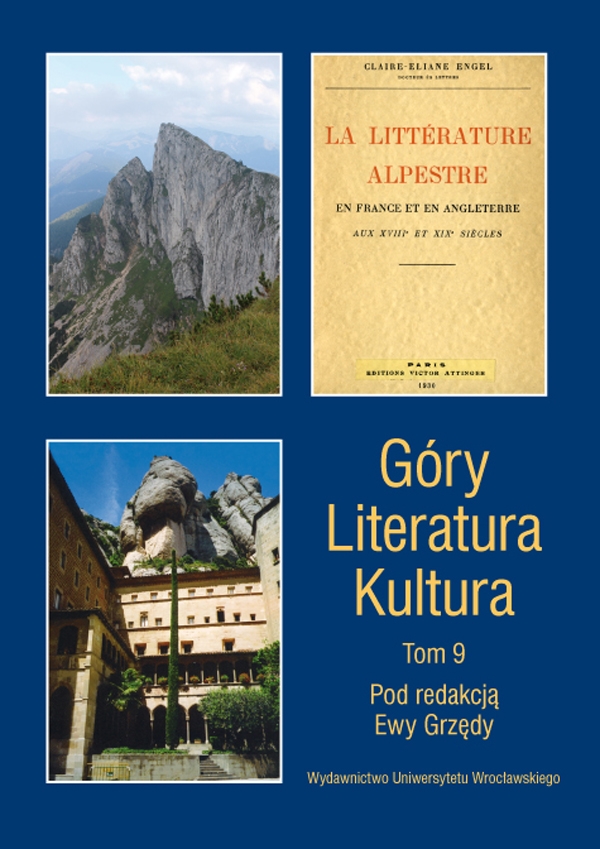

Artykuły

“To be everywhere and see everything”. Experiencing places and oneself during journeys to the mountains. Silesians’ accounts
“To be everywhere” and “see everything” is a declaration by Father Euzebiusz Franciszek Stateczny, a well-known Silesian writer from the turn of the 20th century, and an extraordinary monk and tenacious traveller, who in a true positivist fashion valued the truth about the world based on one’s own experience. By outlining a comprehensive need to get to know the world, Stateczny acted as a cosmographer, which prompted the author of the article to try to establish whether this declaration also applied to other travellers from the region and how this completeness was supposed to be expressed.
The author’s overview of Silesian accounts of trips to the mountains by Karol Miarka, Rev Antoni Stabik, Fr Henryk Aulich, Rev Michał Przywara and Józef Gallus confirms that those Silesian travellers barely felt the spirituality of these spaces, because they did not become harmonised with them in their experiences. As clergymen, they headed mostly to pilgrimage centres, with the mountains providing only an obstacle to be overcome on their way there. That is why deep in their hearts they were not ready to experience the beauty of the mountains, nor did they open themselves up to contemplation of mountain landscapes on account of external circumstances the physical effort of travel was in conflict with the old and exhausted bodies. They were “everywhere”, intending to see “everything” that attracted them, or wherever their pastoral duties took them, but their travelling, though dominated by learning, was dissociated from nature’s clichés. That is why the Silesians’ mountain trips were characterised by “spiritual blindness” to the value of mountain sights. The travellers were not shocked by the rocky landscapes, because they did not experience the pleasure of walking in the mountains, which is why they lacked an aestheticising stimulus. More importantly, by remaining close to the everyday problems of the region and supporting their compatriots in their everyday struggles, the priests were not poets in their lives. That is why their accounts were dominated by somatic descriptions, physiological responses and psychological reactions, reduced mainly to illustrating fear and physical clumsiness. However, this “spiritual blindness” to the beauty of nature was not an inherent characteristic of Silesian travel writers, for they reacted completely differently to sea landscapes seen from the board of ships carrying them to distant corners of the world. When they did not feel the hardship of travel, they were able to find the force and charm of nature in the rich contents of these spaces.